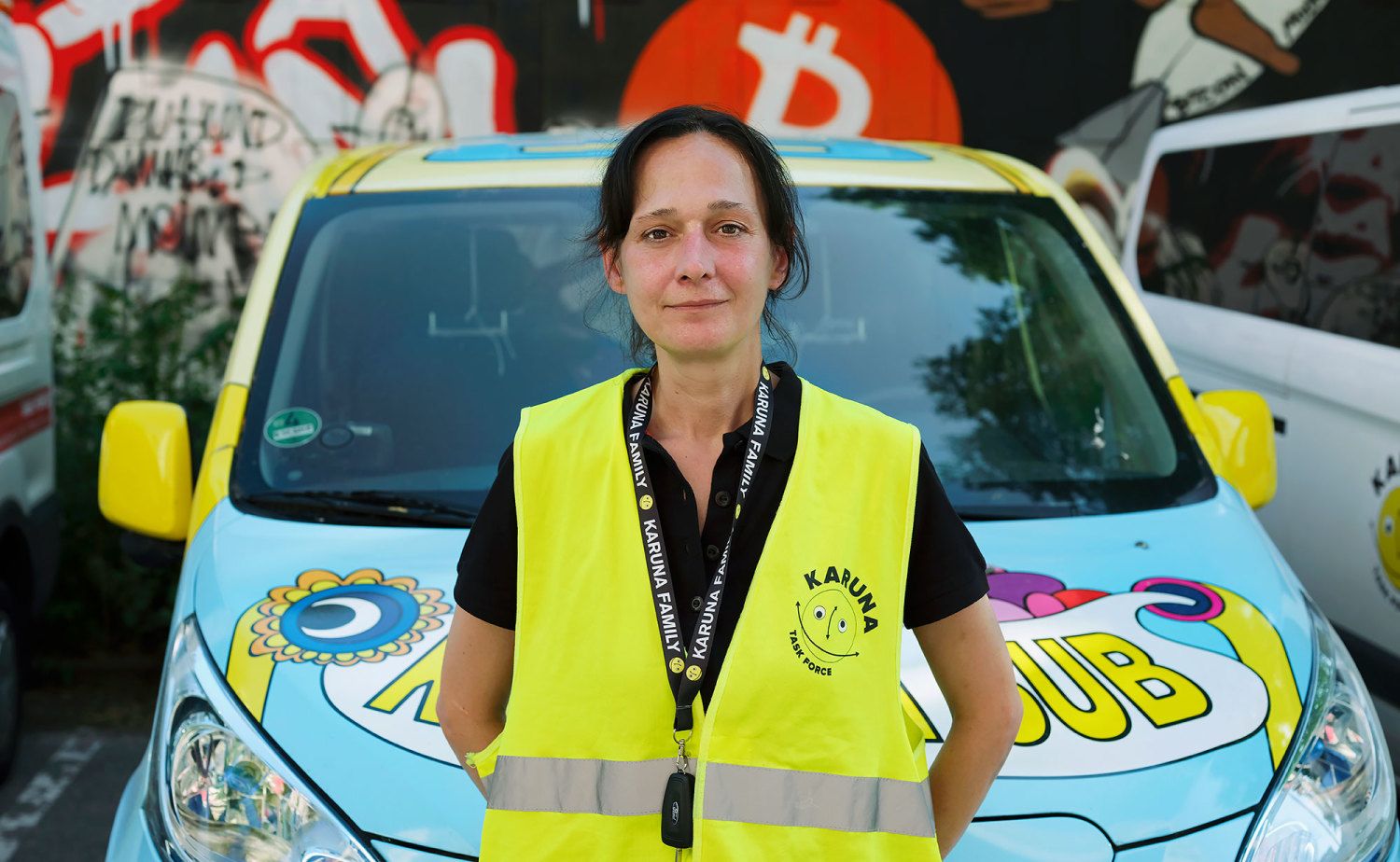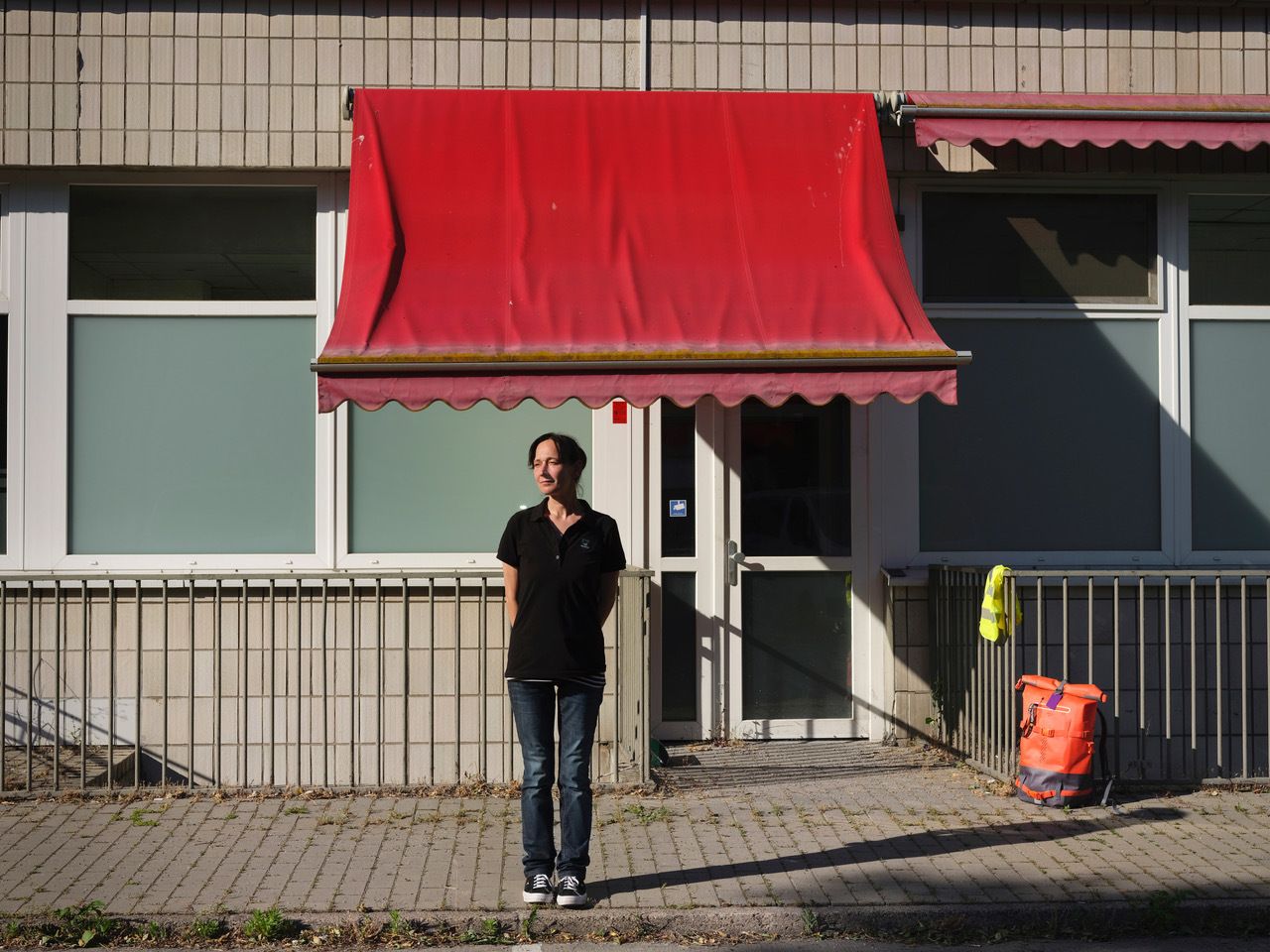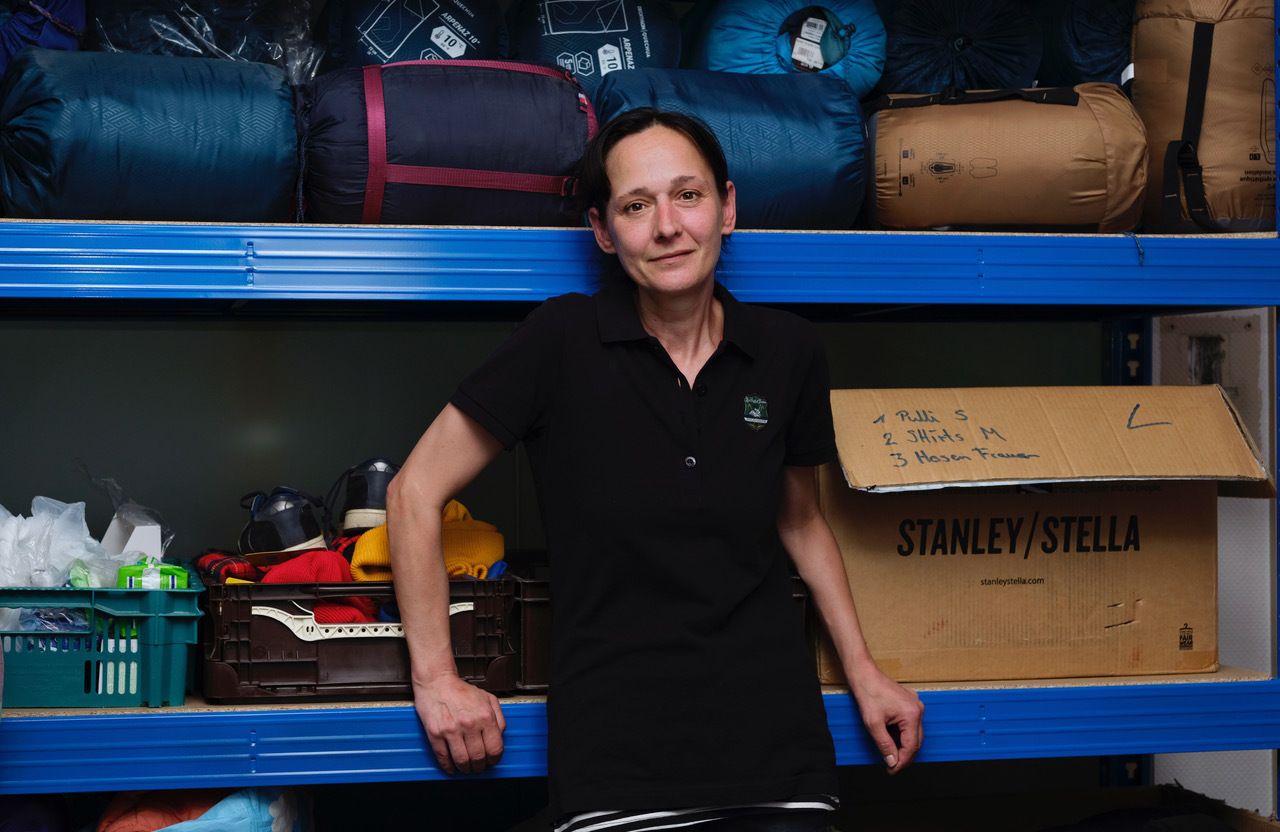The Task Force offers and coordinates guide services for homeless people. In concrete terms, this means that guides employed within the SGE project provide homeless people with information on cold and hot weather assistance; contact shelters; and accompany homeless people to authorities and institutions. A hotline is open weekdays from 9 a.m. to 5 p.m.; outside of these times, the team can be reached by email. The coronavirus pandemic meant that at times, the daily team meetings were relocated to the virtual world. “We use a WhatsApp group so we can all keep in touch with one another and as soon as we get a call, we coordinate which team will go out,” says Caroline Meister. The Task Force has four buses painted in bright colors that stand out from the cityscape and are used to take people to emergency shelters, medical examinations and authorities if they are no longer mobile themselves.
Today, Caroline Meister often works together with her sister, who is also part of Karuna. “We are often at Lichtenberg station, but last Friday, for example, we had an assignment on Greifswalder Strasse. Somebody called to notify us of a homeless person, so we drove out and found a man in a wheelchair with his friend. He came from Lithuania and spoke broken German; his friend couldn’t speak our language at all. We arranged beds for them in the emergency accommodation center on Lehrter Strasse.”
Shelters for homeless people faced particular challenges during the coronavirus pandemic; there was great concern that the virus might spread unchecked among homeless people, a particularly vulnerable group. Several offers of assistance had to be restricted due to contact bans; at the same time, Germany adapted to the pandemic, opening hostels and hotels to homeless people during lockdown. Unlike conventional emergency shelters, people were allowed to stay there during the day as well. One of the four Karuna buses was converted to a Covid transporter: Caroline Meister occasionally works the hotline, which people can call between 3 and 8 p.m. if they need to be taken to a Covid examination. The hotline also handles calls from the quarantine ward on Lehrter Strasse, from which patients are taken to the hospital. The people who drive the Karuna bus received special training to ensure compliance with all coronavirus measures; in the evenings, after the last trip, the bus is cleaned
and prepared for the next day.
The Task Force’s hotline is not only there for calls from homeless people who are in need; citizens who notice homeless people or people in need are welcome to call as well. As soon as a call comes in, the office sends out a team of two which seeks out the homeless person or persons, assesses the situation and immediately discusses next steps with the office. Frequently, this means arranging accommodation for the next night, but may also include organizing medical care, food, or coordinating communications with various authorities.
Today, Caroline Meister is well aware of what it means to be homeless. She had a lucky escape, has an apartment and, thanks to the SGE project, a well-paid job.



